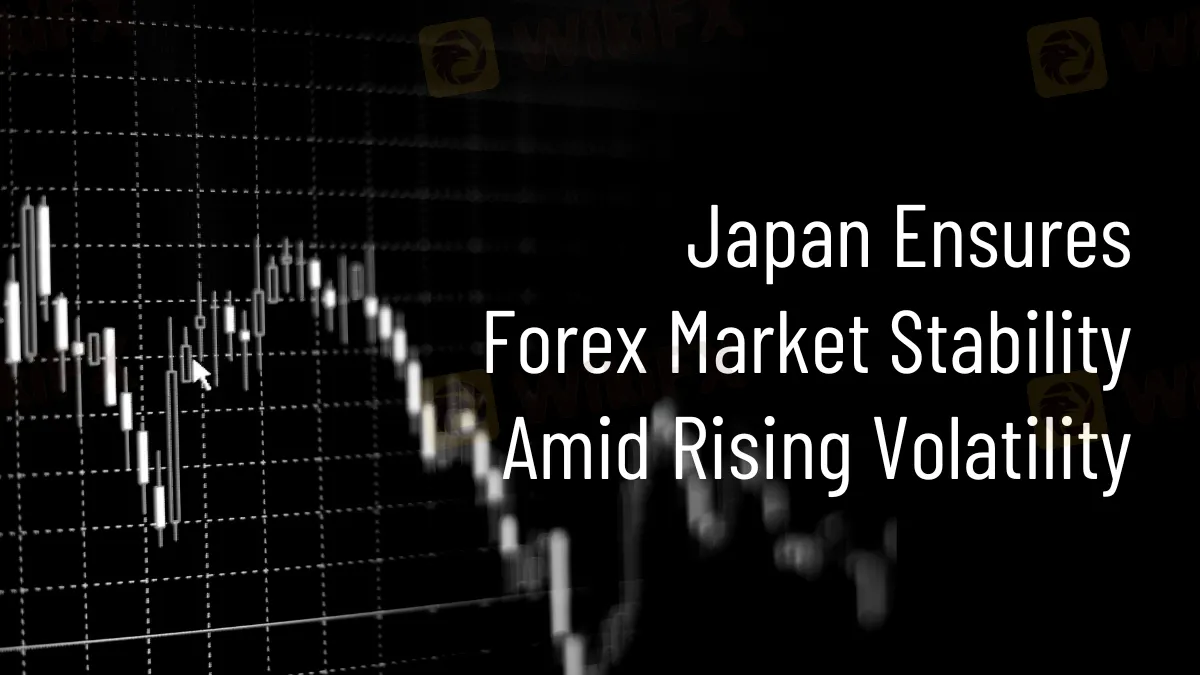简体中文
繁體中文
English
Pусский
日本語
ภาษาไทย
Tiếng Việt
Bahasa Indonesia
Español
हिन्दी
Filippiiniläinen
Français
Deutsch
Português
Türkçe
한국어
العربية
Japan Ensures Forex Market Stability Amid Rising Volatility
Abstract:Japan monitors forex market volatility closely, ensuring stability and addressing speculative concerns while reaffirming commitment to monetary easing and preparing for G20 cryptocurrency discussions.

Japan's top currency official has raised alarm over the currency market's heightened volatility over the last week. Masatsugu Asakawa, Vice Finance Minister for International Affairs, highlighted the need to monitor any speculative actions causing this turbulence closely.
Asakawa spoke with reporters on Monday after regularly meeting with Bank of Japan and Financial Services Agency officials. The conference was called to address recent changes in the financial markets. Asakawa emphasized the need to preserve market stability, particularly given the market's heightened sensitivity to any hints of policy shift.
The dollar fell sharply on Friday, reaching a 4.5-month low of 108.28 yen. This fall came after BOJ Governor Haruhiko Kuroda's remarks, which suggested that the central bank was getting close to meeting its inflation objective. These comments prompted concern that the BOJ's huge stimulus package may be phased off shortly. However, the yen's gains were eventually reversed as a BOJ official explained that Kuroda's remarks only restated the central bank's established position.
The market's response demonstrated its sensitivity to signals that the BOJ may change its monetary policy. Asakawa reiterated the G7 and G20 agreement on competitive currency devaluation, emphasizing that targeting currencies for competitive goals or permitting excessive volatility would harm the economy.
He said, “We restated the G7/G20 agreement that we oppose competitive currency depreciation and do not target currencies for the purpose of competitiveness. Excess volatility and disruptive movements would harm the economy.”
During the meeting, it was also highlighted that the BOJ remains committed to its monetary easing measures to fulfill its aim of 2% price stability. Asakawa reaffirmed Kuroda's comments from Davos, reaffirming the central bank's commitment to monetary easing until the inflation objective is reached.
Asakawa noted that the forthcoming Group of 20 financial leaders conference in Buenos Aires in March will likely include bitcoin talks. He said Japan plans to deal with this problem responsibly, realizing the rising worldwide interest in digital currencies. “This issue will probably be on the agenda in Argentina, so Japan is preparing to respond appropriately,” said the official. “Given that various people are talking about this subject, the chance will be high.”

Disclaimer:
The views in this article only represent the author's personal views, and do not constitute investment advice on this platform. This platform does not guarantee the accuracy, completeness and timeliness of the information in the article, and will not be liable for any loss caused by the use of or reliance on the information in the article.
Read more

Is Infinox a Safe Broker?
INFINOX, founded in 2009 in London, UK, is a regulated online broker under the UK FCA. It offers diverse trading instruments like forex, stocks, commodities, indices, and futures. Clients can choose between STP and ECN accounts and access educational resources. With 24/7 customer support, INFINOX aims to empower traders with reliable tools and guidance.

Is Your Zodiac Sign Fated for Stock Market Success in 2025?
The idea that astrology could influence success in the stock market may seem improbable, yet many traders find value in examining personality traits linked to their zodiac signs. While it may not replace market analysis, understanding these tendencies might offer insights into trading behaviour.

Kraken Offers $105 Fee Credit for FTX Fund Recipients
Kraken offers $105 in trading fee credits to FTX fund recipients, enabling $50,000 in crypto trading on Kraken Pro with zero fees. Secure your funds today!

Good News Malaysia: Ready for 5% GDP Growth in 2025!
Malaysia's economy is on track to sustain its robust growth, with GDP expected to exceed 5% in 2025, according to key government officials. The nation's economic resilience is being driven by strong foreign investments and targeted government initiatives designed to mitigate global economic risks.
WikiFX Broker
Latest News
BI Apprehends Japanese Scam Leader in Manila
Bitcoin in 2025: The Opportunities and Challenges Ahead
Join the Event & Level Up Your Forex Journey
Is There Still Opportunity as Gold Reaches 4-Week High?
Bitcoin miner\s claim to recover £600m in Newport tip thrown out
Good News Malaysia: Ready for 5% GDP Growth in 2025!
How to Automate Forex and Crypto Trading for Better Profits
Breaking News! Federal Reserve Slows Down Interest Rate Cuts
Beware: Pig Butchering Scam Targeting Vulnerable Individuals
This Economic Indicator Sparks Speculation of a Japan Rate Hike!
Currency Calculator






